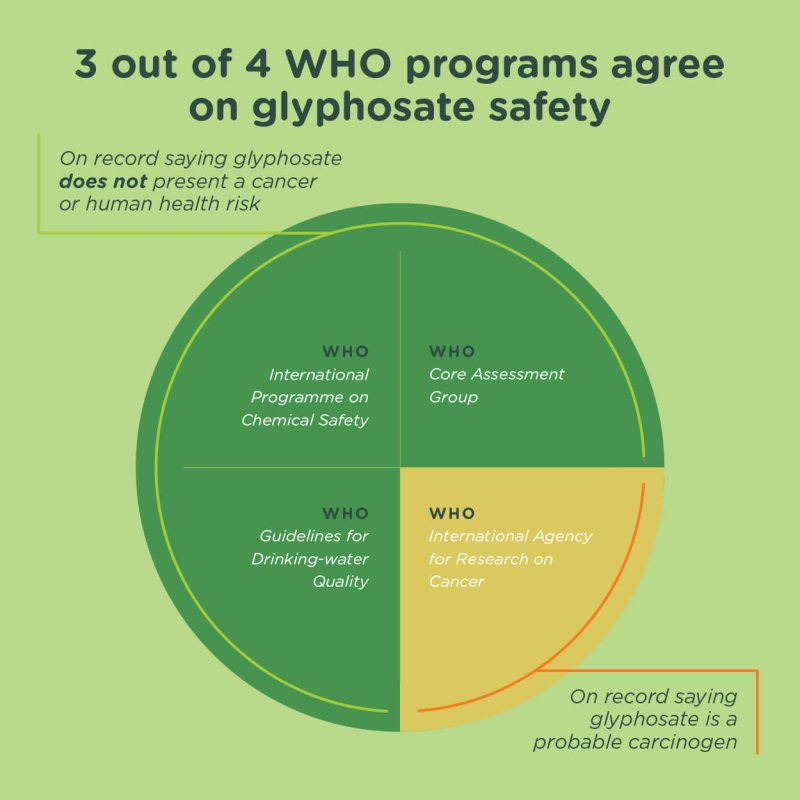A new report on glyphosate [patented originally under the trade name Roundup], commissioned by the Environmental Protection Authority (EPA), says the broad-spectrum herbicide is unlikely to be carcinogenic and should not be classified as a mutagen or carcinogen….
From the executive summary:
The majority of human studies did not show an association between exposure to glyphosate and cancer. Although a small number of studies with a limited number of participants [used by WHO’s IARC committee in its decision that glyphosate was “probably carcinogenic to humans”] found a weak association between glyphosate exposure and increased risk of non-Hodgkin lymphoma (NHL), others did not”. The studies that found no association between glyphosate exposure and NHL included the largest and most reliable, which included over 50,000 participants… “Based on the inconsistency in the results of the studies on glyphosate exposure and NHL, and the lack of any association in the largest, most robust study, it was concluded that there is no convincing evidence of an association between glyphosate exposure and the development of cancer in humans.
[The report] takes into account studies reviewed by the International Agency for Research on Cancer (IARC) as well as those assessed by the European Food Safety Authority (EFSA), the US Environmental Protection Agency (US EPA) and the FAO/WHO Joint Meeting on Pesticide Residues (JMPR).
The GLP aggregated and excerpted this blog/article to reflect the diversity of news, opinion and analysis. Read full, original post: EPA report concludes glyphosate an unlikely carcinogen































